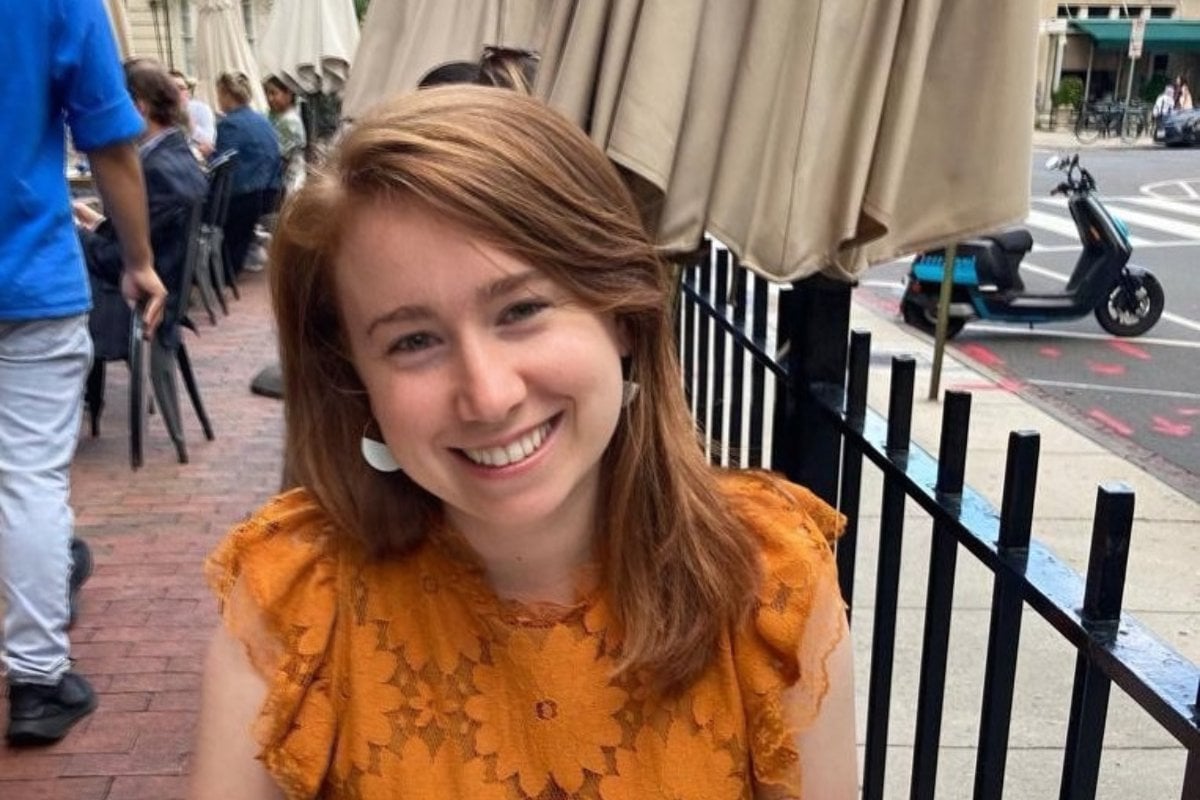
When Rhaina Cohen started a relationship with her now-husband at the age of 22, she thought she’d made a trade. In exchange for a successful, long-term romantic partnership, she would never again experience the sensation of falling in love.
Then, two and a half years later, she met 'M'.
Speaking to Mamamia's No Filter podcast, the American journalist and author describes the night she and M were introduced at a party in Washington D.C. There was instant chemistry, a giddiness, and almost-flirtatious banter. Within days, they saw each other again and exchanged lengthy voice messages. Within weeks, they were inseparable.
It was love, Cohen said. But not in the standard, romantic sense.
"At the time, when this was unfolding, it felt like the way that I fell in love with my husband, [except there wasn’t] a sexual desire component to it. It was sort of like infatuation and thrill and butterflies," she said. "And so I was trying to wrap my mind around, 'Why is it that I was told that this feeling can only happen within romance? Because I'm experiencing it in friendship right now.'"
What evolved between her and M was a relationship of enormous significance. One for which there isn’t a widely accepted term. It wasn't a romantic relationship, but "best friend" didn’t seem to cut it either. Not given the frequency of contact, the level of intimacy, the reliance on each other, the support, nurturing, and love.
And so Cohen set out to explore what it means to have a serious platonic partnership — or, as she and M called theirs, a 'romantic friendship'. The result is The Other Significant Others, a book that tells the stories of people who have reimagined life with friendship at the centre.

Top Comments